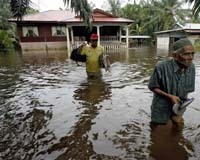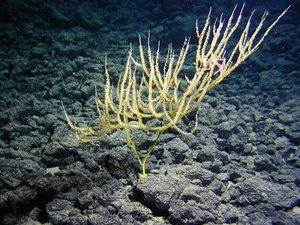
|
| ©New Yorker
|
| Disabled retroviruses-fossils of molecular battles that raged for generations-make up eight per cent of the human genome.
|
Thierry Heidmann's office, adjacent to the laboratory he runs at the Institut Gustave Roussy, on the southern edge of Paris, could pass for a museum of genetic catastrophe. Files devoted to the world's most horrifying infectious diseases fill the cabinets and line the shelves. There are thick folders for smallpox, Ebola virus, and various forms of influenza. SARS is accounted for, as are more obscure pathogens, such as feline leukemia virus, Mason-Pfizer monkey virus, and simian foamy virus, which is endemic in African apes. H.I.V., the best-known and most insidious of the viruses at work today, has its own shelf of files. The lab's beakers, vials, and refrigerators, secured behind locked doors with double-paned windows, all teem with viruses. Heidmann, a meaty, middle-aged man with wild eyebrows and a beard heavily flecked with gray, has devoted his career to learning what viruses might tell us about AIDS and various forms of cancer. "This knowledge will help us treat terrible diseases," he told me, nodding briefly toward his lab. "Viruses can provide answers to questions we have never even asked."



